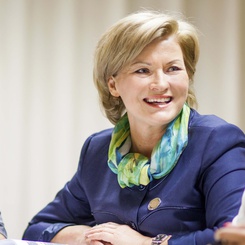Professors are expected to have a higher standard of professional ethics, which may help obtain better CSR performance ratings. From the paper “Professors on the Board: Do They Contribute to Society Outside the Classroom?” by Prof. Charles Cho at ESSEC Business School, Jay Heon Jung, Byungjin Kwak, Jaywon Lee, and Choong-Yuel Yoo. Published in The Journal of Business Ethics.
Diversity matters in the boardroom—previous research has shown that a diverse board of directors, whose members bring varied experiences, knowledge, resources, and perspectives to the table, will advise managers more effectively. Studies have argued that diversity can contribute to better governance, impact corporate policy, and even boost various performance indicators.
As firms face a growing array of global challenges, including global warming, resource depletion, and social inequality, Corporate Social Responsibility (CSR) performance indicators have become increasingly important. But what kind of diversity could help boost a firm’s CSR performance ratings?
Professor-Directors bring higher standards of professional ethics...
Many firms appoint university professors as members of their board of directors—today, more than 38% of Standard & Poor’s 1,500 firms have at least one professor on their board. This may be because university professors have a reputation for higher standards of professional ethics since their roles and responsibilities include obligations towards citizens, both inside and outside the classroom. As educators, they exercise influence upon the present, as well as future generations, and are likely to base their teaching on universal ethics such as humility, honesty, trust, empathy, healing, community, and service.
So, is having professors on the board associated with a stronger impact on a firm’s CSR performance ratings? Working from a sample built from RiskMetrics over the period from 2003 - 2011, this study documents the less-investigated, but nonetheless important, question of whether firms with academic faculty members on the board do indeed exhibit higher corporate social responsibility performance ratings.
Our results show a significant and positive association between the presence of professor-directors and firm CSR performance ratings, and that a change in the number of professor-directors improves the strength of such ratings. However, our results also show a nuanced difference between disciplines.
...but some more so than others
It is important to remember that professors constitute a group of heterogeneous professionals who possess different academic training, discipline knowledge, and scholarly experience. In fact, previous research has provided mixed evidence about the ethicality of professors—on the one hand, professors are overall perceived as having a relatively higher standard of professional ethics. On the other hand, business professors have been singled out and criticized for not taking the initiatives in cultivating morality and setting an ethical example for their students.
Our research results were similarly mixed—we found that while specialized professors-directors from the disciplines of engineering, science, and medicine have a positive effect on firm CSR performance ratings, business professors did not appear to affect the same ratings. We also found that professor-directors who hold an administrative position within their university exerted less influence on firm CSR activities.
Why are business professors less able to exert a positive influence on CSR performance ratings? This is likely due to the wide criticism that they have neglected the importance of corporate accountability in their education and failed to train responsible managers. Such an (outdated) paradigm where these issues are neglected, however, is in dire need of change. And this is why it is important that business schools continue their shift to embrace CSR and sustainability issues. Initiatives like theGlobally Responsible Leadership Initiative (GRLI) and theUnited Nations Principles for Responsible Education (PRME) are paving the way to that necessary change.
Useful links:
-
- The Center of Excellence Management and Society (CEMAS), ESSEC
- "The Frontstage and Backstage of Corporate Sustainability Reporting: Evidence from the Arctic National Wildlife Refuge Bill " (C. Cho, M. Laine, R. Roberts, M. Rodrigue), Journal of Business Ethics
- "Is Environmental Disclosure Good for the Environment? A Meta-Analysis and Research Agenda" (C. Cho, J. Maurice, E. Nègre, MA. Verdier, ), Korean Accounting Review, Jun 2016, Vol. 41, Issue 3, p. 239‑277
- "In Distrust of Merits: The Negative Effects of Astroturfs on People?s Prosocial Behaviors" (J. Kang, H. Kim, H. Chu, C. Cho, H. Kim, ), International Journal of Advertising, Issue 1
- "Professors on the Board: Do They Contribute to Society Outside the Classroom?" (C. Cho, JH. Jung, B. Kwak, J. Lee, CY. Yoo), Journal of Business Ethics
- "Organized Hypocrisy, Organizational Façades, and Sustainability Reporting" (C. Cho, M. Laine, R. Roberts, M. Rodrigue), Accounting Organizations and Society, Jan 2015, Vol. 40, Issue 1, p. 78‑94









